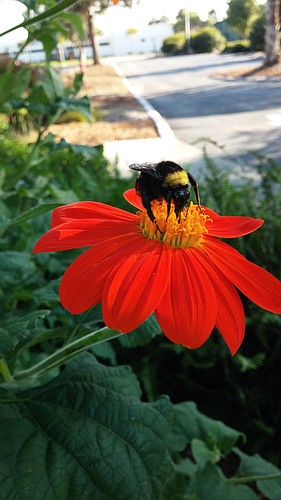- April 26, 2024
-
-
Loading

Loading

Sarasota and Manatee counties have joined in a nationwide effort to attract pollinators — animals such as birds, bees and butterflies that transfer pollen in and between flowers — to local landscapes. The effort is part of the Million Pollinator Garden Challenge, an initiative launched in June by the National Pollinator Garden Network. The challenge encourages citizens, groups, businesses and governmental agencies to identify and register 1 million pollinator-friendly habitats by the end of 2016.
“Pollinators are responsible for one out of every three bites of food we take, and their population is declining” said Stacy Spriggs, agriculture and natural resources program coordinator for the University of Florida IFAS (Institute of Food and Agricultural Sciences) Extension Sarasota County. “We want to increase habitat and reverse that decline. People can do anything, from a small step, like getting an earth box, or a larger effort, like planting a field. All those efforts help because they are increasing the habitat of pollinators.”
Manatee County UF IFAS Extension Office urban horticulturist Lisa Hickey agreed.
“The more area the pollinators can roam for their food, the better,” she said. “If something happens to one area, you lose pollinators in that area.”
Residents can encourage pollination in their yards by planting pollinator-friendly plants, such as salvia and daisies, providing appropriate habitats, which include areas for water and canopy for insects, such as banana or palm leaves, sand or logs.
Individuals also should try to avoid the use of pesticides near gardens because pollinators are sensitive to them. Even household chemicals, such as bleach used to clean a patio or chlorine in a swimming pool, can drive pollinators away, Hickey said.